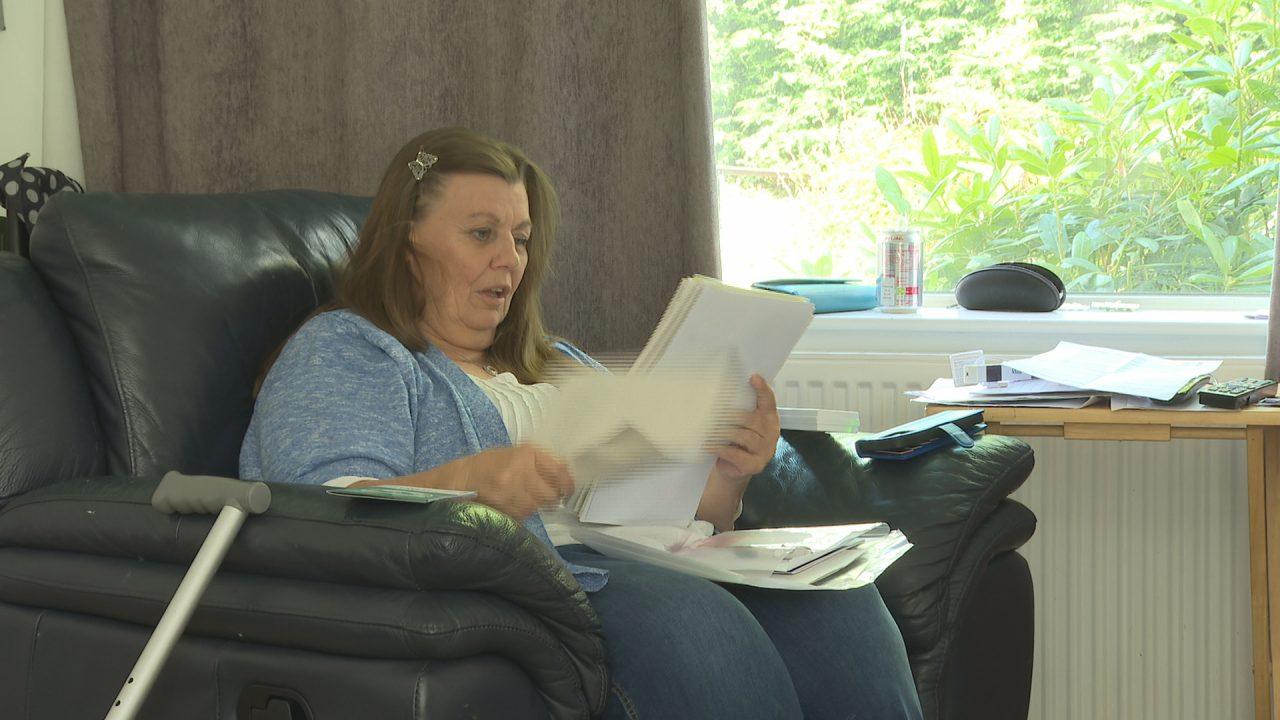When June Campbell had a stroke in March 2022, her daughter raced to phone an ambulance.
Had she not acted so quickly, things could have been very different for the former nurse from Penicuik in Midlothian.
“I would have been dead or I would have been too far gone for them to help,” she told STV News.
“If my daughter hadn’t been off that day and if she hadn’t phoned the ambulance, because the doctor did say to her ‘if you hadn’t phoned the ambulance your mum wouldn’t be here to talk to us right now’.
“It was my daughter who came running through and said ‘mum, I think you’re having a stroke’. Here’s me, a nurse of 40 years thinking ‘no, I’m not having a stroke.'”
June was speaking as new figures show nearly half of all stroke patients in Scotland aren’t receiving care to the national standard that ensures the best chance of survival and recovery.
Public Health Scotland statistics released this week revealed the target of 80% of patients receiving stroke care bundle is not being hit.
Only half (51.3%) of the 10,803 Scots who had a stroke last year received the care defined by national standards.
After major surgery June has been offered a number of options of support.
But new data from Public Health Scotland shows only half of the more than 10,000 Scots who had a stroke last year received the care defined by national standards that ensure the best chance of survival and recovery.
June said: “If I hadn’t had the support when I got out, I wouldn’t be here as far on as I am. Now I can sort of go on a bus myself, not far, but I can go to the bus stop, get on the bus, get off at the other end, do some bits and pieces.”
Scotland is falling well behind its targets of 80% of patients having access to a stroke care bundle – including aspirin, access to a stroke unit, brain imaging and a swallow screening.
Stroke remains one of the biggest causes of long-term disability.
Allan Cowie, chief operating officer at Chest Heart & Stroke Scotland, said: “We recognise the pressure that the NHS is under, that’s not an issue. We know how hard our colleagues – both clinical and non-clinical – are working with the NHS.
“But that doesn’t take away from the fact that a significant number of people aren’t getting the standard of care that they need.”
The Scottish Government says significant progress has been made in stroke care over the last decade. But remains committed to doing more.
A stroke improvement plan was published in June last year.
Follow STV News on WhatsApp
Scan the QR code on your mobile device for all the latest news from around the country




























